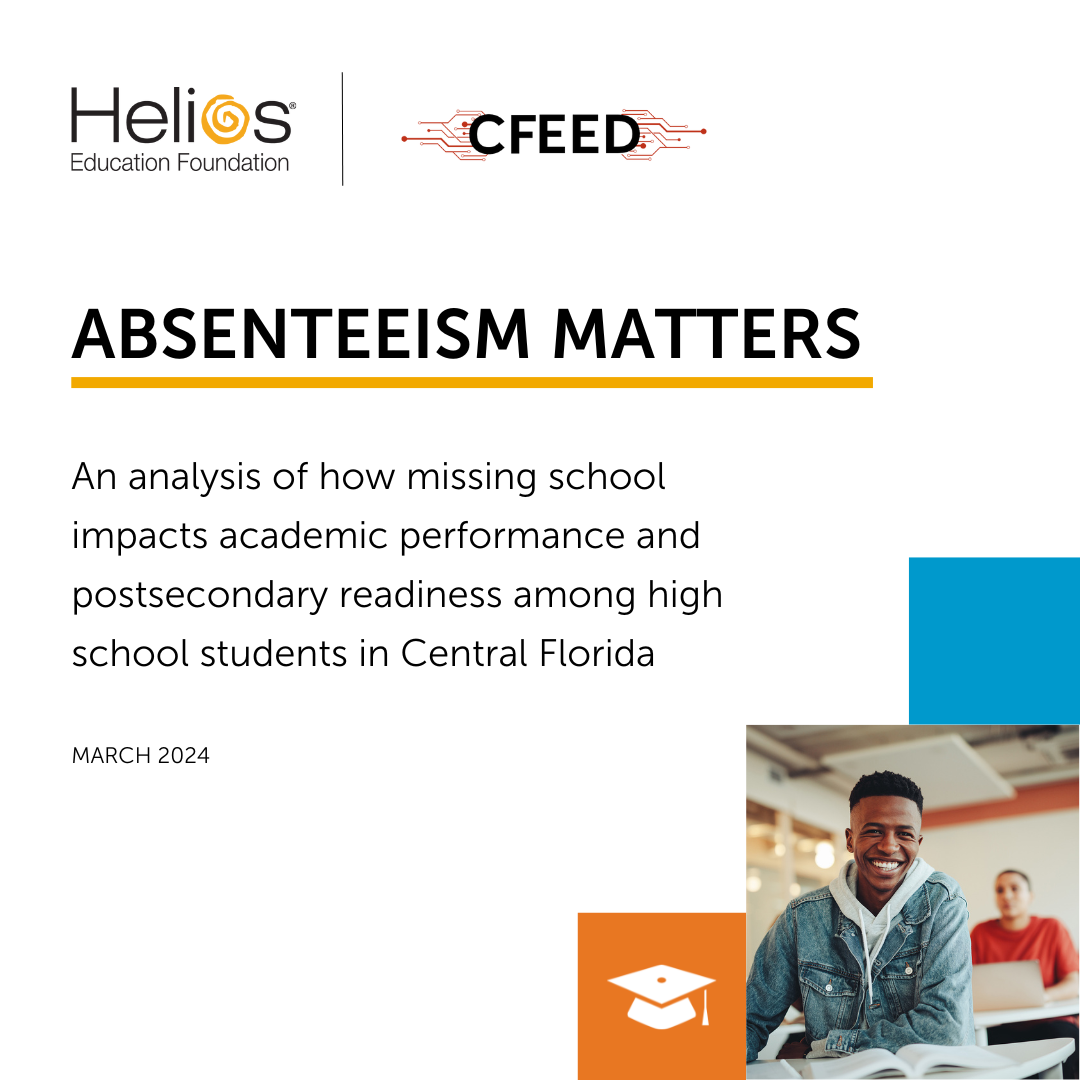Chronic absenteeism’s impact on academic achievement and university enrollment in Central Florida

The phenomenon of chronic absenteeism is emerging as a nationwide challenge, threatening the academic achievements of students and their potential readiness for postsecondary education. This issue has been particularly underscored by a study conducted in Central Florida by Helios Education Foundation in collaboration with the Central Florida Education Ecosystem Database (CFEED).
The study reveals a troubling increase in absentee rates in Osceola and Orange counties and its subsequent impact on student performance and university enrollment, serving as a microcosm of a larger, pervasive problem affecting the educational landscape.
Chronic absenteeism, defined as missing 10% or more of the school year, and its more severe form, repetitive chronic absenteeism (missing 10 days or more in four or more school years), have collectively seen a notable increase among high school cohorts between 2017 and 2022. The study showed a sharp 43% rise in repetitive chronic absenteeism rates during this timeframe, escalating from 25% to 33%.
This increase not only highlights the growing prevalence of absenteeism, but also its deeper implications on the educational and future prospects of students. Repetitive chronic absenteeism was particularly associated with lower academic performances in commonly taken accelerated courses and reduced enrollment rates at the University of Central Florida (UCF).
Furthermore, the study exposes a disproportionate impact of absenteeism on traditionally marginalized groups, with the highest increases observed among Black students and those receiving free or reduced lunch.
The findings call for concerted efforts from districts and schools to tackle the root causes of chronic absenteeism and to implement strategies that encourage regular attendance.
Three strategies for reducing chronic absenteeism in Central Florida schools
- Build awareness and understanding of chronic absenteeism, the challenges it presents, and its impacts.
- Establish practical, reliable systems to monitor attendance patterns and absenteeism trends, both annually and year-over-year.
- Celebrate and replicate school, grade, and classroom-level attendance successes.
About the research
CFEED builds tools and processes that facilitate analysis of student performance, from pre-kindergarten through postsecondary, to inform development of relevant, practical interventions that will increase student success. Powered by a data-sharing model among partners and participating institutions in the region, the CFEED database enables research teams to generate insights based on robust, silo-free datasets for the purposes of supporting improved decision-making for better students outcomes.
CFEED’s analysis of chronic absenteeism in Central Florida builds on previous work Helios Education Foundation has done to understand the impact of the COVID-19 pandemic on chronic absenteeism rates in Arizona.

